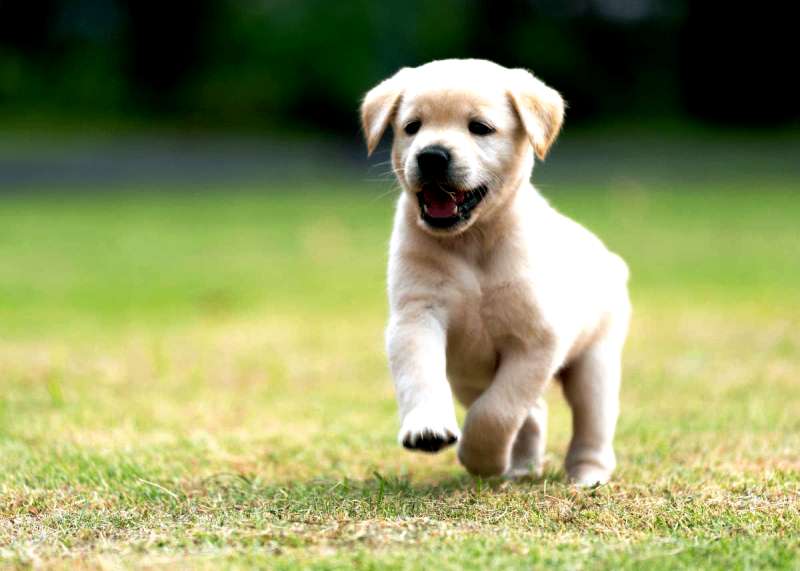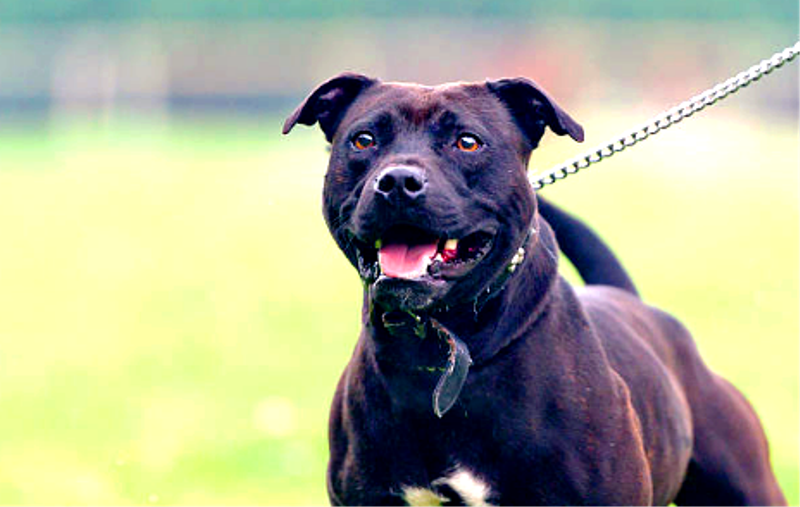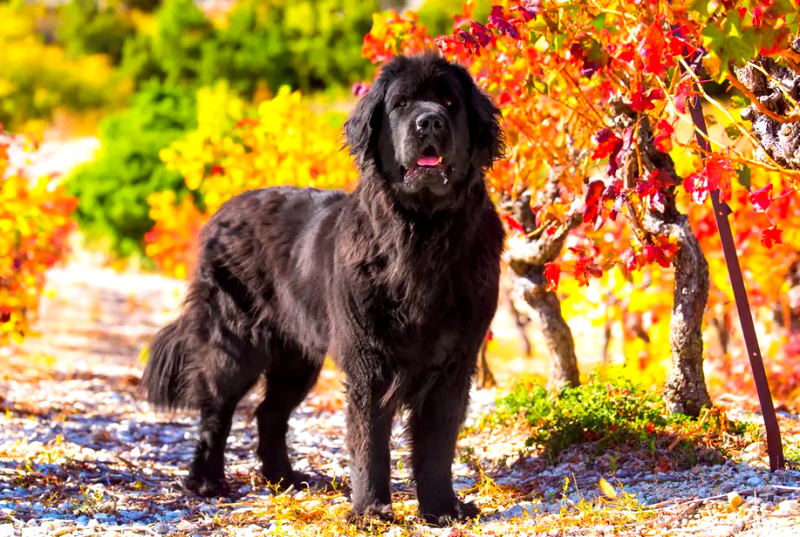Golden Retriever Puppies
Golden Retriever Puppies : Golden Retrievers are one of the most popular dog breeds in the world and are known for their friendly and easy-going attitudes. Their playful and gentle nature also makes them excellent family pets. This guide provides an in-depth look at Golden Retriever puppies, covering their history, physical characteristics, behavior, training, care, health, and tips for choosing a Golden Retriever puppy.
Golden Retriever History
Golden Retrievers originated in the Scotland mid-19th century. The breed was developed by crossing the now extinct Yellow Retriever with a Tweedwater Spaniel, along with Bloodhounds, Irish Setters, and more Tweedwater Spaniels.
The goal was to create a breed with an excellent nose for tracking, a soft mouth for retrieving animals, and a love of water. The breed has gained popularity due to its exceptional hunting skills and friendly nature. It was first recognized as a distinct breed by the Kennel Club of the United Kingdom in 1913 and by the American Kennel Club in 1925.
Physical Characteristics
Golden Retrievers are medium to large-sized dogs known for their thick, waterproof coat, which comes in various shades of golden. Their physical traits include:
Adult males typically weigh between 65 and 75 pounds and stand between 23 and 24 inches tall at the shoulder. Females weigh between 55 and 65 pounds and stand between 21.5 and 22.5 inches tall. Their double coat consists of a dense, waterproof outer coat and a thick, insulating undercoat. The coat may be straight or wavy. The coat color ranges from light golden to dark golden. They have friendly, intelligent eyes that range in color from medium brown to dark brown. Their ears are medium-sized, hang close to the cheeks, and are set high and slightly above the eyes. Golden Retrievers have a thick, muscular tail that is carried in a slight upward curve but never curls over the back.
Behavior and Mood
Golden Retrievers are known for their friendly and easy-going attitude. They are highly intelligent, eager to please, versatile, and excel in a variety of roles from family pets to service dogs. Key behavioral traits include:
They are known for their affectionate and gentle nature, making them excellent companions for children and other pets. Their high intelligence and eagerness to please others make training them easy. Golden Retrievers are active and require regular exercise to stay happy and healthy. They thrive on human interaction and are known to be very social with other dogs and people.They are deeply committed to their families, known for their unwavering loyalty and devotion.

Golden Retriever Puppy Training
Training a Golden Retriever puppy is a rewarding experience because of their intelligence and eagerness to learn. Here are some basic training tips:
Begin training your puppy immediately upon bringing them home. Early socialization and basic obedience are essential building blocks for a well-behaved dog. Employ positive reinforcement techniques, rewarding good behavior with treats, praise, and toys.Avoid harsh punishments, as Golden Retrievers respond best to positive reinforcement. Be consistent with commands and rules to avoid confusing your puppy. Expose your puppy to different environments, people, and other animals to ensure that he grows into a well-adjusted adult. Teach basic commands such as sit, stay, come, and walk. These form the basis for more advanced training. Training requires patience and perseverance Keep training sessions brief and enjoyable to maintain your puppy’s focus.
Caring for Golden Retriever Puppies
Proper care is essential for the health and well-being of Golden Retriever puppies. This includes nutrition, grooming, exercise, and medical care.
Nutrition
Provide a balanced diet appropriate for your puppy’s age, size, and activity level. Consult your veterinarian for specific nutritional recommendations. Create a regular feeding schedule. Puppies typically need three to four meals a day, increasing to two meals as they grow. Make sure fresh water is always available.
Hair Care
Golden Retrievers shed their hair year-round, and they shed heavily in the spring and fall. Brush their coat at least twice a week to remove loose hair and prevent tangles. Bathe your puppy as needed, usually every two months or when he gets very dirty. Check and clean his ears regularly to prevent infections. Brush your puppy’s teeth several times a week to prevent dental problems. Trim his nails regularly to prevent overgrowth and discomfort.
Exercise
Golden Retrievers are active dogs that require regular exercise to stay healthy and happy. Exercise needs include at least one long walk or two shorter walks a day. Engage in interactive games, such as fetch or tug-of-war. Provide puzzle games and training exercises to keep their minds active.
Health Care
Regular veterinary care is essential to keeping your puppy healthy. Important aspects include following your veterinarian’s recommended vaccination schedule to protect against common diseases. Use flea, tick, and heartworm preventatives. Make regular appointments to visit your veterinarian for health assessments and to address any concerns. Discuss the appropriate time to spay your puppy with your veterinarian.
Common Health Problems
Golden Retrievers are generally healthy, but they are susceptible to certain genetic conditions and health problems, including an inherited condition in which the hip joint does not fit properly into the hip socket, leading to arthritis. Similar to hip dysplasia but affecting the elbows. Such as subvalvular aortic stenosis (SAS). Including cataracts and progressive retinal atrophy (PRA). Golden Retrievers are at increased risk for developing some types of cancer, such as angiosarcoma and lymphoma. They may suffer from skin allergies and food allergies.
Choosing a Golden Retriever Puppy
When choosing a Golden Retriever puppy, consider the following factors. Choose a breeder who performs health checks on farm dogs and adheres to ethical breeding practices. Make sure your puppy’s parents have a health clearance for common genetic conditions. Monitor your puppy’s mood. Look for a puppy that is friendly, curious, and interacts well with people and other animals. The breeding environment should be clean, and the puppies should look healthy and well-groomed. Ask for documentation of your puppy’s vaccinations, medical records, and any pedigree information.
Bringing Your Puppy Home
Preparing for a new golden retriever puppy involves several steps to ensure a smooth transition: Remove hazards and secure dangerous areas of your home. Prepare all necessary supplies, including a crate, bedding, food and water bowls, toys, grooming tools, harness, and collar. Create a daily routine for feeding, potty breaks, playtime, and training. Schedule a visit to the vet soon after bringing your puppy home for a health check and vaccination schedule. Begin training and socialization right away to lay the foundation for a well-adjusted, well-behaved adult dog.
Golden Retriever puppies are a wonderful addition to any family, providing endless joy, companionship, and affection. With proper care, training, and attention, they grow into loyal, loving adult dogs. Whether you’re looking for a family pet, a working dog, or a loyal companion, the Golden Retriever is an excellent choice. By understanding their needs and characteristics, you’ll be able to ensure a happy, fulfilling life for your Golden Retriever puppy.



